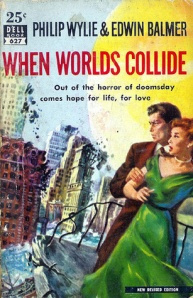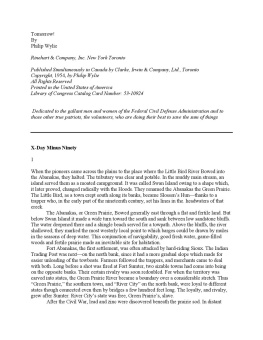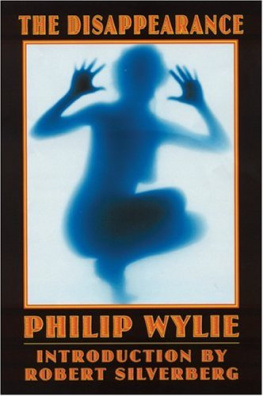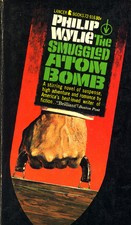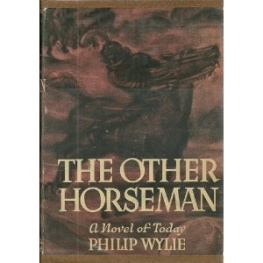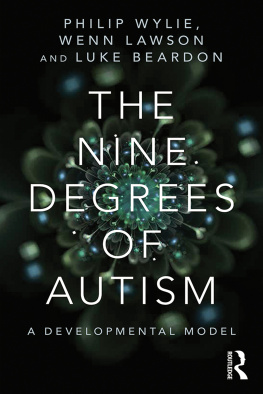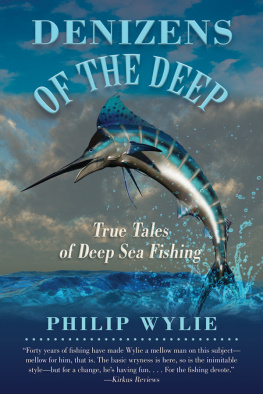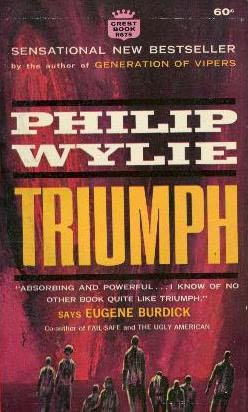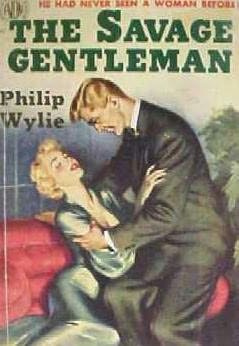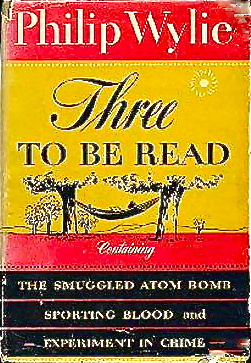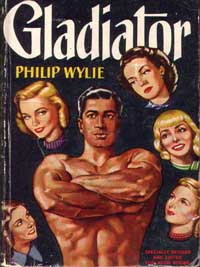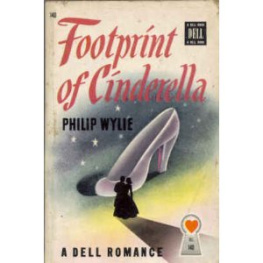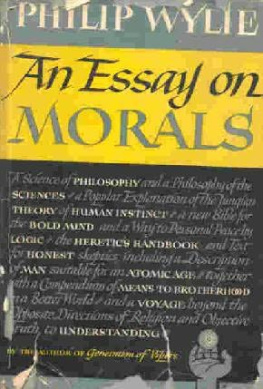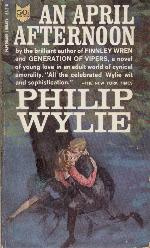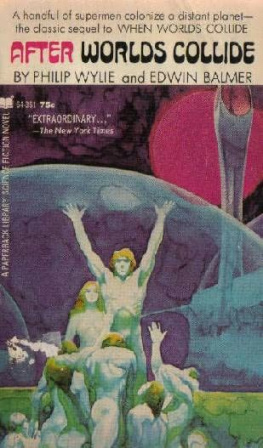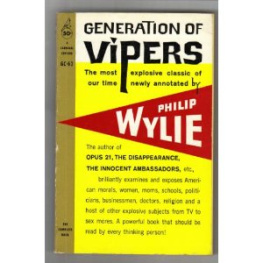Philip Wylie - When Worlds Collide
Here you can read online Philip Wylie - When Worlds Collide full text of the book (entire story) in english for free. Download pdf and epub, get meaning, cover and reviews about this ebook. genre: Art. Description of the work, (preface) as well as reviews are available. Best literature library LitArk.com created for fans of good reading and offers a wide selection of genres:
Romance novel
Science fiction
Adventure
Detective
Science
History
Home and family
Prose
Art
Politics
Computer
Non-fiction
Religion
Business
Children
Humor
Choose a favorite category and find really read worthwhile books. Enjoy immersion in the world of imagination, feel the emotions of the characters or learn something new for yourself, make an fascinating discovery.
- Book:When Worlds Collide
- Author:
- Genre:
- Rating:5 / 5
- Favourites:Add to favourites
- Your mark:
- 100
- 1
- 2
- 3
- 4
- 5
When Worlds Collide: summary, description and annotation
We offer to read an annotation, description, summary or preface (depends on what the author of the book "When Worlds Collide" wrote himself). If you haven't found the necessary information about the book — write in the comments, we will try to find it.
When Worlds Collide — read online for free the complete book (whole text) full work
Below is the text of the book, divided by pages. System saving the place of the last page read, allows you to conveniently read the book "When Worlds Collide" online for free, without having to search again every time where you left off. Put a bookmark, and you can go to the page where you finished reading at any time.
Font size:
Interval:
Bookmark:
Philip Wylie & Edwin Balmer -- When Worlds Collide
THE secret itself was still safe. It was clear that the public not yet could have learned it. No; the nature of the tremendous and terrific Discovery remained locked in the breasts of the men who had made it. No one had broken so badly under the burden of it that he had let slip any actual details of what had been learned.
But the fact that there was a secret, of incomparable importance, was out.
David Ransdell received plenty of proof of it, as he stood at the liner's rail, and the radiograms from shore were brought to him. He had had seven, all of the same sort, within the hour; and here was another.
He held it without opening it while he gazed across the sparkling water at the nearing shores of Long Island beyond which lay New York. Strange that, in a city which he could not yet see, men could be so excited about his errand, while the fellow-passengers, at his elbow, glanced at him with only mild curiosity at the sudden frequency of radiograms for him.
They would be far less indifferent, if they had read them.
The first, arriving less than an hour ago, offered him one thousand dollars for first and exclusive information--to be withheld from all others for twelve hours--of what he carried in his black box. It was signed by the most famous newspaper in New York.
Hardly had the messenger started back to the radio station when a second boy appeared with a message from another newspaper: "Two thousand dollars for first information of your business in New York."
Within ten minutes the offer had jumped to five thousand dollars, made by another paper. Plainly, the knowledge that there was a secret of utmost importance had spread swiftly!
The offer remained at five thousand for twenty minutes; indeed, it dipped once to twenty-five hundred dollars as some timid soul, on a more economical newspaper, ventured to put in his bid; but quickly it jumped again and doubled. It was ten thousand dollars, in the last radiogram which Dave had opened. Ten thousand dollars cash for first information, which now needed to be withheld from others only for six hours, regarding what he was bringing to New York.
The thrilling and all-absorbing fact of it was that David Ransdell himself did not know what he carried which could become of such amazing concern. He was merely the courier who transported and guarded the secret.
He could look in his box, of course; he possessed the key. But he had the key, as also he had custody of the heavy black box, because those who had entrusted it to him knew that he would never violate his word. Least of all, would he sell out to others. Moreover (if curiosity tried him beyond his strength) he had Professor Bronson's word for it that the contents of the box would be utterly meaningless to him. Only a few men, with very special training, could make out the meaning.
Cole Hendron in New York--Dr. Cole Hendron, the physicist--could make it out. Indeed, he could determine it more completely than any other man alive. That was why Dave Ransdell, from South Africa, was bound for New York; he was bringing the box to Cole Hendron, who, after he had satisfied himself of the significance of its contents, would take the courier into his confidence.
Dave gripped the rail with his aggravated impatience for arrival in the city. He wondered, but with secondary interest only, under the circumstances, what it would be like in America. It was the native land of his mother; but David had never so much as seen its shores before. For he was a South African-his father an Englishman who had once ranched in Montana, had married a Montana girl and had taken her to the Transvaal. Dave had been born at Pretoria, schooled there, and had run away from school to go to war.
The war had made him a flyer. He had stayed in the air afterward, and he was flying the mails when, suddenly, at the request of Capetown,--and he did not yet know from how high an official source,--he had been granted a special leave to fly a certain shipment of scientific material to America.
That is, he was instructed to fly it not only the length of his ordinary route, but to continue with it the length of Africa and across to France, where he was to make connection with the first and fastest ship for New York.
Of course, the commission intrigued him. He had been summoned at night to the great mansion of Lord Rhondin, near Capetown.
Lord Rhondin himself, a big, calm, practical-minded man, received him; and with Lord Rhondin was a tall, wiry man of forty-odd, with a quick and nervous manner.
"Professor Bronson," Lord Rhondin said, introducing Ransdell.
"The astronomer?" Dave asked as they shook hands.
"Exactly," said Lord Rhondin. Bronson did not speak at all then, or for several minutes. He merely grasped Dave's hand with nervous tightness and stared at him while he was thinking, patently, of something else--something, Dave guessed, which recently had allowed him too little sleep.
"Sit down," Lord Rhondin bade; and the three of them seated themselves; but no one spoke.
They were in a big, secluded room given to trophies of the hunt. Animal skins covered the floor; and lion and buffalo and elephant heads looked down from the walls, their glass eyes glinting in the light which was reflected, also, by festoons of shining knives and spears.
"We sent for you, Ransdell," said Lord Rhondin, "because a very strange discovery has been made--a discovery which, if confirmed in all details, is of incomparable consequence. Nothing conceivable can be of greater importance. I tell you that at the outset, Ransdell, because I must refrain for the present from telling you anything else about it."
Dave felt his skin prickling with a strange, excited awe. There was no doubt that this man--Lord Rhondin, industrialist, financier and conspicuous patron of science--thoroughly believed what he said; behind the eyes which looked at David Ransdell was awe at knowledge which he dared not reveal. But Dave asked boldly:
"Why?"
"Why can't I tell you?" Lord Rhondin repeated, and looked at Bronson.
Professor Bronson nervously jumped up. He stared at Lord Rhondin and then at Ransdell, and looked up from him at a lion's head.
"Strange to think of no more lions!" Bronson finally muttered. The words seemed to escape him involuntarily.
Lord Rhondin made no remark at this apparent irrelevance. Ransdell, inwardly more excited by this queerly oppressive silence, at last demanded:
"Why will there be no more lions?"
"Why not tell him?" Bronson asked.
But Rhondin went abruptly to business: "We asked leave for you, Ransdell, because I have heard that you are a particularly reliable man. It is essential that material connected with the discovery be delivered in New York City at the earliest practicable moment. You are both an expert pilot who can make the best speed, and you are dependable. If you will take it, I will put the material in your care; and
-can you start to-night?"
"Yes sir. But--what sort of material, I must ask, if I am to fly with it?"
"Chiefly glass."
"Glass?" Dave repeated.
"Yes--photographic plates."
"Oh. How many of them?"
Lord Rhondin threw back a leopard-skin which had covered a large black traveling-case.
"They are packed, carefully, in this. I will tell you this much more, which you may guess, from Professor Bronson's presence. They are photographic plates taken by the greatest telescopes in South Africa, of regions of the southern sky which are never visible in the Northern Hemisphere. You are to take them to Dr. Cole Hendron in New York City, and deliver them personally to him and to no one else.
I would tell you more about this unusual errand, Ransdell, if the--the implications of these plates were absolutely certain."
Next pageFont size:
Interval:
Bookmark:
Similar books «When Worlds Collide»
Look at similar books to When Worlds Collide. We have selected literature similar in name and meaning in the hope of providing readers with more options to find new, interesting, not yet read works.
Discussion, reviews of the book When Worlds Collide and just readers' own opinions. Leave your comments, write what you think about the work, its meaning or the main characters. Specify what exactly you liked and what you didn't like, and why you think so.

